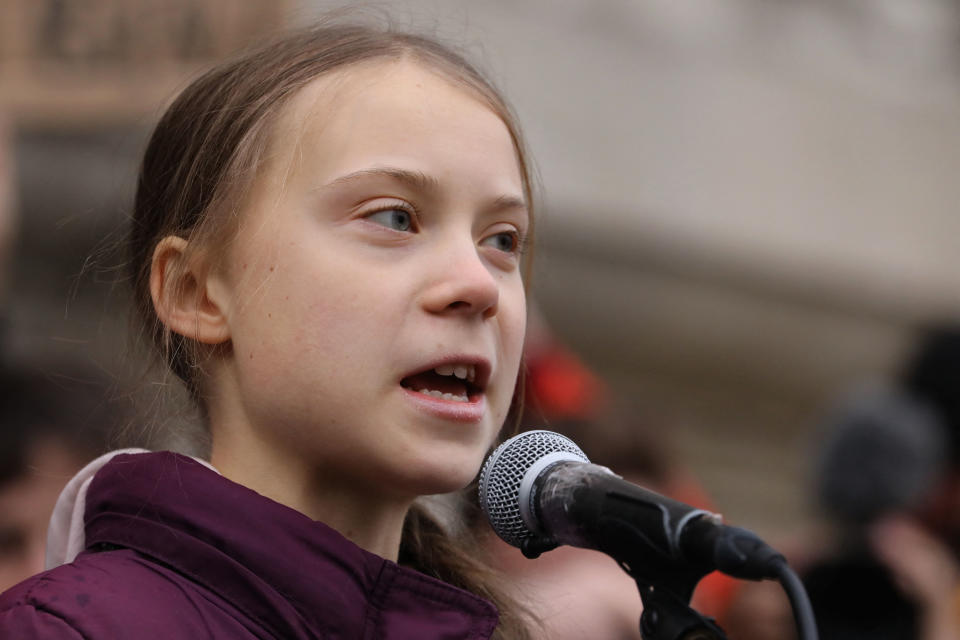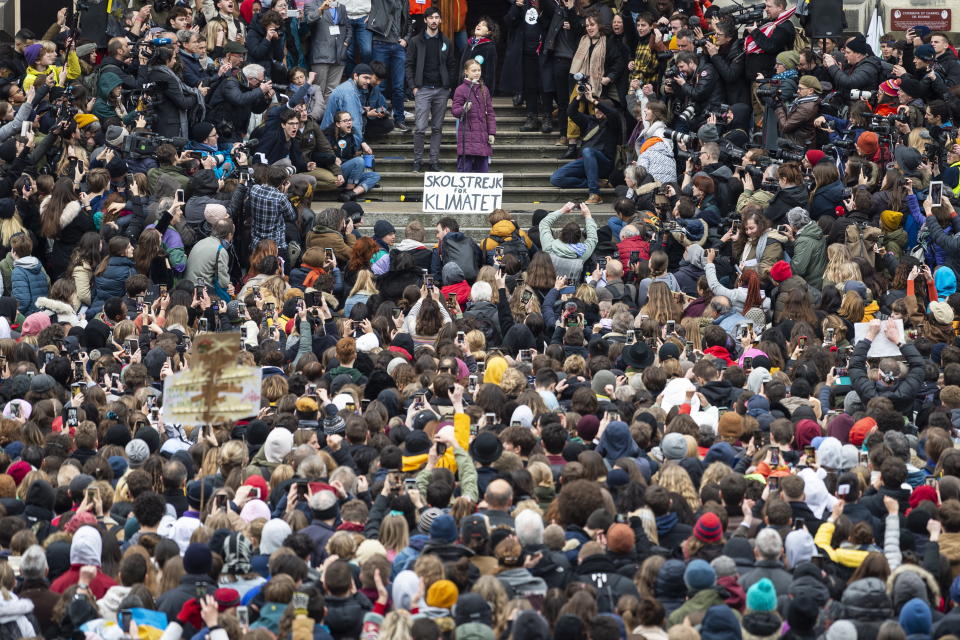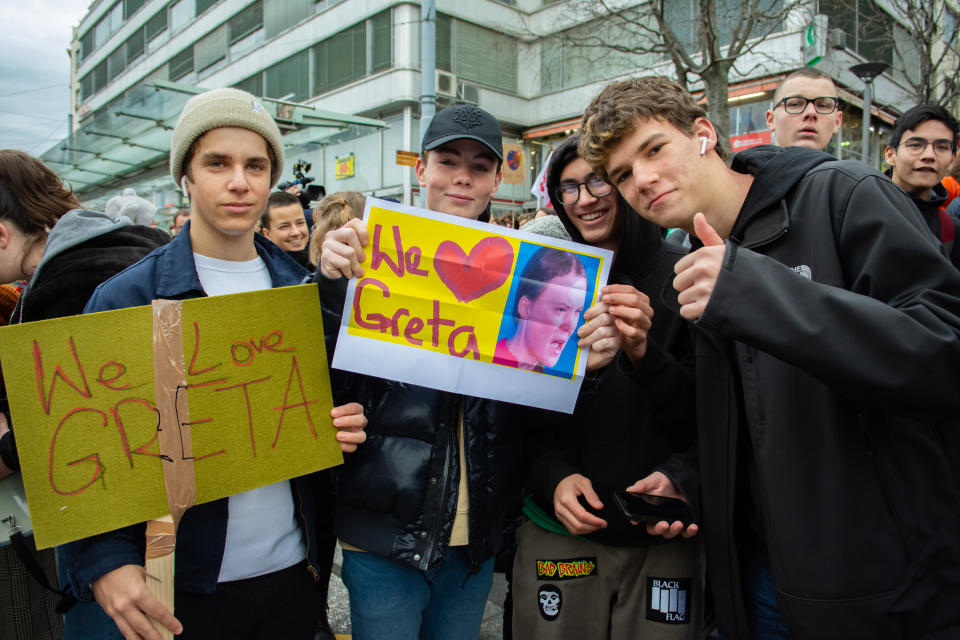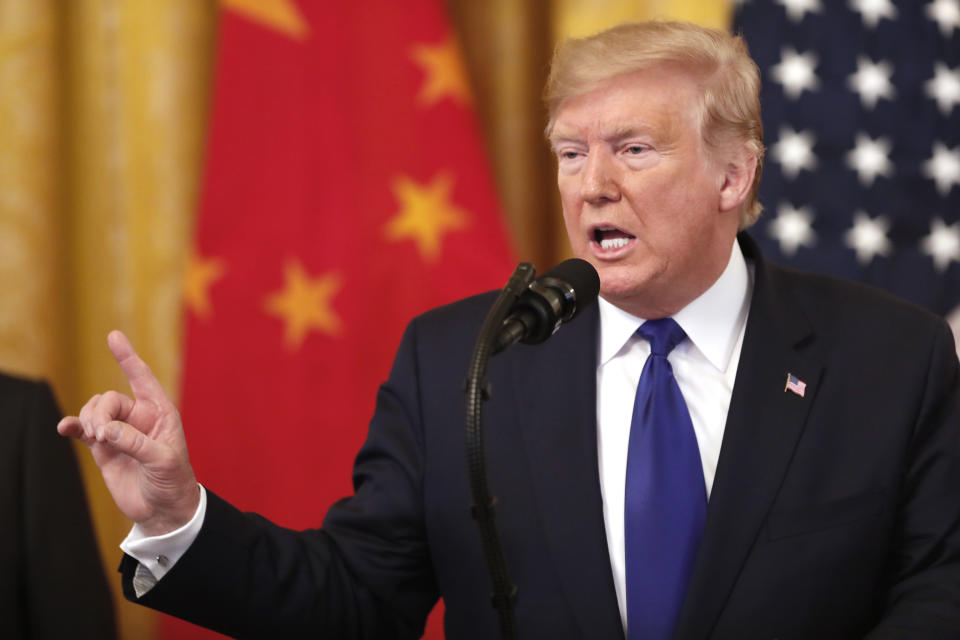Greta Thunberg's message to world leaders: 'You have not seen anything yet'
Swedish activist Greta Thunberg and a crowd of some 10,000 protesters have marched in the Swiss city of Lausanne before many of them head to Davos to challenge political and business leaders.
The 17-year-old activist denounced a lack of government action to cut heat-trapping emissions before it is too late.
"So, we are now in a new year and we have entered a new decade and so far, during this decade, we have seen no sign whatsoever that real climate action is coming and that has to change," Thunberg said in a speech in Lausanne on Friday, AEST.
"To the world leaders and those in power, I would like to say that you have not seen anything yet. You have not seen the last of us, we can assure you that. And that is the message that we will bring to the World Economic Forum (WEF) in Davos next week."
The Davos event, held annually in the Swiss ski resort town of the same name, sees business, industry and political elites descend on the town to discuss global economic issues.
According to Bloomberg, at least 119 billionaires are expected to be at Davos this coming week.

‘Wake up and smell the bushfires’
During the Lausanne event, protesters held signs with messages including "Wake up and Smell the Bushfires" and "It is late but it is not too late".
Hundreds of campaigners took trains over the weekend and then marched to Klosters near Davos, which Thunberg is attending for the second year in a row and will take part in two panel events.
Climate change and environmental destruction top the risks highlighted by world decision-makers in a survey ahead of the 2020 gathering.
This year's event takes place against the backdrop of some of Australia's worst ever bushfires which will loom large over the gathering.

Last year was the earth's second-hottest since records began, and the world should brace itself for more extreme weather events like the bushfires in Australia, the United Nations' World Meteorological Organisation (WMO) said on Wednesday.
"We are ... an alliance that is organising next week in 20 countries to say 'time is up' to the World Economic Forum in Davos. Time is up," Kenyan activist Njoki Njoroge Njehu told the crowd in Lausanne.
"It is time to abolish billionaires. It is time to abolish billionaires, because we cannot afford them, the planet cannot afford billionaires," he said.
Climate at top of risk list
This year's Davos has chosen sustainability as its main theme and comes as campaigners such as Thunberg ramp up pressure on businesses and governments to act on climate change and other environmental threats.
At the same time, leading economies are behind on pledges to cut carbon emissions made with the 2015 Paris Agreement and activists remain wary of empty promises, pointing to the huge subsidies and private funds still on offer for fossil fuel companies.

US President Donald Trump is expected to attend, although some world leaders will skip this year's Davos.
New British Prime Minister Boris Johnson has told his ministers to avoid an event seen by many as elitist, a source in his office has reportedly said.
In a bid to preempt criticism that its jet-setting guests are part of the problem, the World Economic Forum said this year's event would use offsets to be fully carbon neutral, line up more electric vehicles and offer local food and non-meat protein options.
"The political landscape is polarised, sea levels are rising and climate fires are burning," Borge Brende, President of the forum said.
Environmental concerns have been rising up the list of its perceived long-term risks in recent years, a marked change from a decade ago when the West's biggest economies were thrown into recession by the financial crisis.
The biggest risk that year was seen as a fresh collapse in asset prices, while inequality was the top concern from 2012 to 2014. Immigration loomed large in the 2016 survey as hundreds of thousands of migrants arrived in Europe, fleeing war and poverty in the Middle East and Africa.

Aside from the environment, the 2020 survey highlights concerns about shortfalls in governance of the technology sector, struggling health sectors and doggedly high inequality.
In its methodology for the survey, the WEF said a "global risk" was defined as one that could cause major harm to several countries or industries within the next 10 years.
Two-thirds of the respondees were male, with a majority from Europe and North America and most aged between 40 and 59. For the first time, the survey included results from 200 under-30s around the world identified as future leaders in various fields.
Do you have a story tip? Email: newsroomau@yahoonews.com.
You can also follow us on Facebook, Instagram and Twitter and download the Yahoo News app from the App Store or Google Play.



